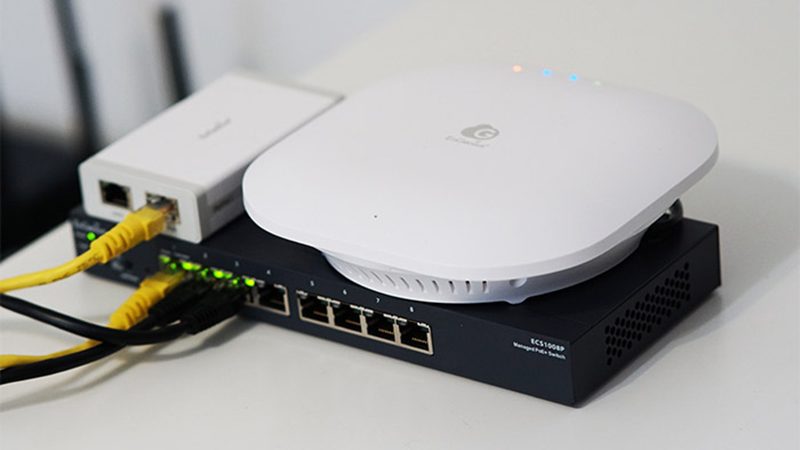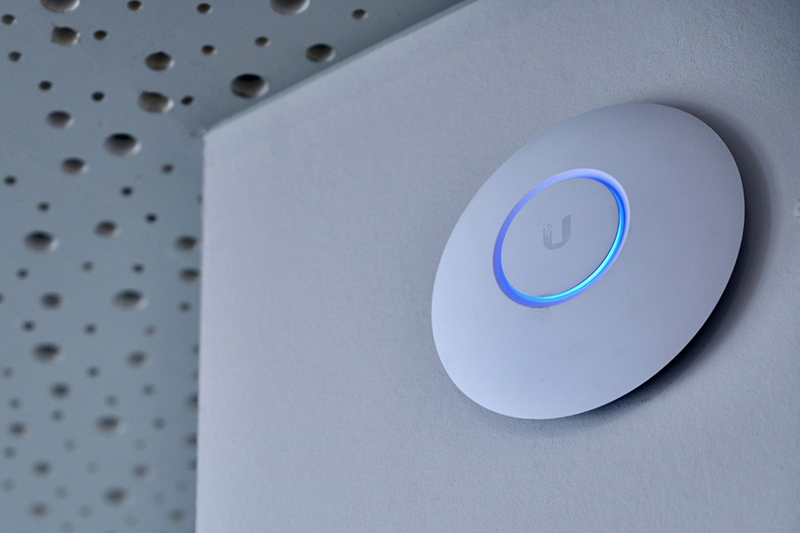In recent years, the development of science and technology has made people’s demand and dependence on the Internet more and more. Wireless access points are smaller and easier to install and maintain.
What are wireless access points?
A wireless access point is a device used to create a WLAN. Businesses in large offices or buildings often use wireless access points. This device is connected to an internet hub, wired router, or switch using an Ethernet cable. Then project the Wi-Fi signal to the designated area.
Things to Consider
As more and more enterprises upgrade their wireless network environment, people also have doubts about choosing a wireless access point. When choosing a wireless access point, keep the following points in mind.
1 Range
The range that an AP can cover is an important parameter, and a WAP with a larger coverage area is more beneficial. Because it means the number and cost of access points can be reduced. Purchasing WAPs with additional coverage areas can reduce costs for businesses. Most enterprise wireless access points are capable of covering an area of 5,000 to 10,000 square feet.
2 Speed
The rate at which information travels is also something we need to consider, usually measured in bps (bits per second), kilobits, megabits, or gigabits. In general, if the exact 802.11n protocol is supported, wireless AP speeds can reach 300Mbps or higher, six times faster than 802.11n. The WAP that supports the 802.11ac protocol can reach 1200Mbps.
3 Gain Antenna
The antenna of the wireless AP is basically built-in, it is not external like the antenna of the router. The antenna of the wireless AP is very important, it will directly affect the signal strength and transmission range of the wireless AP. When buying a wireless AP, it is best to choose one with a booster antenna.
4 Guest Access
Data breaches and other cybersecurity issues are happening every day now. When people use their phones and computers over the Internet, security issues are not expected. Modern systems have intelligent guest access systems that apply corporate security policies. This ensures that guests stay safe on the network. Also, there is no need to worry about access from unsecured devices.
5 No Hardware Controllers
In the past, access points also required IT technicians with specialized knowledge to operate from a computer. However, with the advancement of technology, these are no longer necessary. The latest Wi-Fi 6 access points, for example, use software control in the network and do not require an external controller. Software-based control has many benefits over previous hardware-dependent access points. Not only do you eliminate large blocks of hardware, but also the possibility of a single point of failure in the network.
6 Wifi Technology
Choose devices using MESH, MIMO and POE access point technologies based on your business needs. MESH technology can be used in home and commercial equipment. MIMO technology significantly reduces the blocking effect that affects Wi-Fi signals, thereby reducing data speeds. POE technology adopts low-power cabling technology and can transmit signals up to 100M.
7 Price
It’s not that the higher the price, the better the AP. Sometimes the high price will not only increase the cost, but also cause waste of product function and performance. But too low a price can tempt people to buy inferior or counterfeit products. So it is best to have a clear understanding of the actual performance of wireless APs, so as not to be tempted by unreal advertising effects.
Conclusion
There are many types of wireless APs on the market today, and there are many choices. It’s best to understand your business needs before you make a choice. Consider some of the above, or ask an expert for recommendations. Router-switch–your professional IT provider.
Want to know more, please click here: Routers, Switches, Firewalls
Read More:
Wireless Access Point vs. Wireless Router – What are the differences?
UniFi FlexHD vs. UniFi NanoHD – Which Access Point is more reliable
Ubiquiti vs. Aruba- which access point is better in a high-density environment
Reference:
Blog. 2022. How to Find the Best Wireless Access Point. [online]
Fiber Optic Solutions. 2022. Things to Consider When Choosing a WAP. [online]



